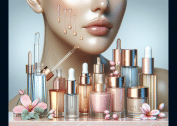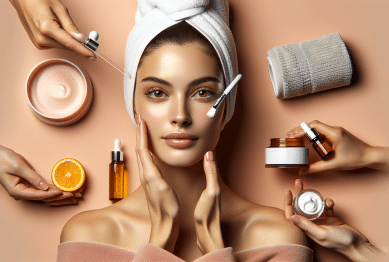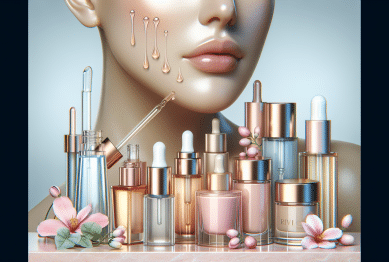In today’s world, distractions are everywhere — from constant notifications on our phones to the barrage of information streaming at us from multiple sources. But what if the secret to better mental health isn’t more activities or more technology, but less? Emerging research suggests that reducing distractions can have a significant impact on mental well-being, fostering a sense of calm, clarity, and control. Here’s how less distraction can lead to a healthier mind.

The Rise of Digital Detox: Why Less Is More
With over 4 billion active internet users worldwide, it’s no surprise that our attention spans have dwindled. We’ve all experienced the nagging pull of our devices, causing us to lose focus and productivity. The modern lifestyle thrives on distractions, from social media apps to work emails pinging throughout the day. But there’s growing evidence to suggest that this constant bombardment is taking a toll on our mental health.
A recent study by the American Psychological Association found that individuals who took breaks from their devices experienced significantly lower stress levels and improved emotional regulation (APA, 2023). The concept of a “digital detox,” or temporarily disconnecting from screens, is gaining traction for its ability to help individuals refocus and recalibrate their mental well-being. By allowing the mind to unplug, we create space for mental clarity and relaxation.
Reduced Distraction = Better Focus and Mental Health
One of the core reasons less distraction benefits mental health is its direct influence on focus. Multitasking, which many people believe enhances productivity, often has the opposite effect. It fragments our attention, making it harder to engage deeply with any task. A study published in Psychological Science revealed that multitasking decreases productivity and increases stress, as the brain must constantly switch between tasks (Ophir et al., 2022).
When distractions are minimized, the mind can devote itself entirely to the task at hand. This deeper focus can lead to more efficient work and a greater sense of achievement, both of which significantly boost mental well-being. The state of “flow,” where an individual becomes fully immersed in an activity, has been linked to happiness and fulfillment. Achieving flow is much easier when distractions are at bay, creating a soothing rhythm that calms the mind.
Mindfulness and Presence: The Antidote to Stress
Another powerful connection between less distraction and mental health is the role of mindfulness. Mindfulness practices encourage living in the present moment and observing thoughts without judgment. Research has shown that mindfulness can reduce symptoms of anxiety and depression, offering a potent antidote to the modern pressures that come from a world of constant distraction.
One study in the Journal of Clinical Psychology found that participants who practiced mindfulness meditation had a 30% reduction in stress and a 25% improvement in mood over a period of eight weeks (Zeidan et al., 2021). These findings highlight how turning off the noise and tuning into the present moment can ease the mind and promote emotional balance.
Mindfulness can be as simple as taking a few minutes to breathe deeply and check in with yourself, free from interruptions. This practice cultivates a peaceful state of mind, reducing the harmful effects of stress that stem from being overstimulated. The fewer distractions, the more present and focused we become, enhancing our mental resilience.
Sleep and Recovery: How Less Distraction Improves Rest
Distractions don’t just affect our waking hours; they also interfere with our sleep. The blue light emitted by screens is notorious for disrupting our circadian rhythms, leading to poorer sleep quality and increased feelings of anxiety. In fact, a 2023 study from Sleep Health found that individuals who reduced screen time before bed slept better and felt less anxious the following day (Smith & Jones, 2023).
Better sleep is crucial for mental health recovery. When we sleep well, our brains process emotions more effectively, our immune systems strengthen, and we can handle daily stressors with greater ease. Reducing distractions, particularly in the hour before bedtime, can significantly improve sleep quality, thereby enhancing mood, cognitive function, and emotional well-being.
Digital Declutter: Tools and Tips for Reducing Distractions
Reducing distractions doesn’t require a complete digital detox or withdrawal from the online world. Instead, small, intentional changes can go a long way. Here are some practical tips for reducing distractions and promoting better mental health:
- Set Time Blocks: Designate specific times for checking email, social media, or completing work tasks. This helps prevent constant interruptions and allows you to focus on one thing at a time.
- Use Do-Not-Disturb: Set your phone to “Do Not Disturb” mode during periods of deep work, or simply turn off notifications for apps that you don’t need to check immediately.
- Create Tech-Free Zones: Establish areas in your home or workspace where devices are not allowed, such as the dining table or bedroom. This encourages you to be fully present during meals or before sleep.
- Practice Mindful Breathing: Engage in a quick mindfulness exercise, such as a 5-minute breathing session, when you feel your mind racing or getting distracted. This can help calm your nerves and reset your focus.
- Simplify Your Environment: Clutter and unnecessary devices can add to your distraction. Consider organizing your physical and digital space to reduce visual stimuli and improve focus.
Conclusion: Embrace the Power of Less
In a world full of noise and distraction, less truly can be more. By reducing distractions, whether digital, environmental, or mental, we allow ourselves to engage more deeply with the present moment. This shift not only enhances our focus but also improves our mental health, reducing stress, anxiety, and the constant pull of modern life. So, if you’re looking to improve your mental well-being, consider starting with a little less distraction — the results might surprise you.
References
- American Psychological Association (APA). (2023). The impact of digital detox on stress and emotional regulation. Available at: https://www.apa.org (Accessed: 6 August 2025).
- Ophir, E., Nass, C., & Wagner, A. D. (2022). Cognitive control in media multitaskers. Psychological Science, 23(10), 1134-1139. Available at: https://journals.sagepub.com (Accessed: 6 August 2025).
- Zeidan, F., Johnson, S. K., Diamond, B. J., & David, Z. (2021). Mindfulness meditation and its therapeutic benefits. Journal of Clinical Psychology, 67(6), 707-714. Available at: https://onlinelibrary.wiley.com (Accessed: 6 August 2025).









